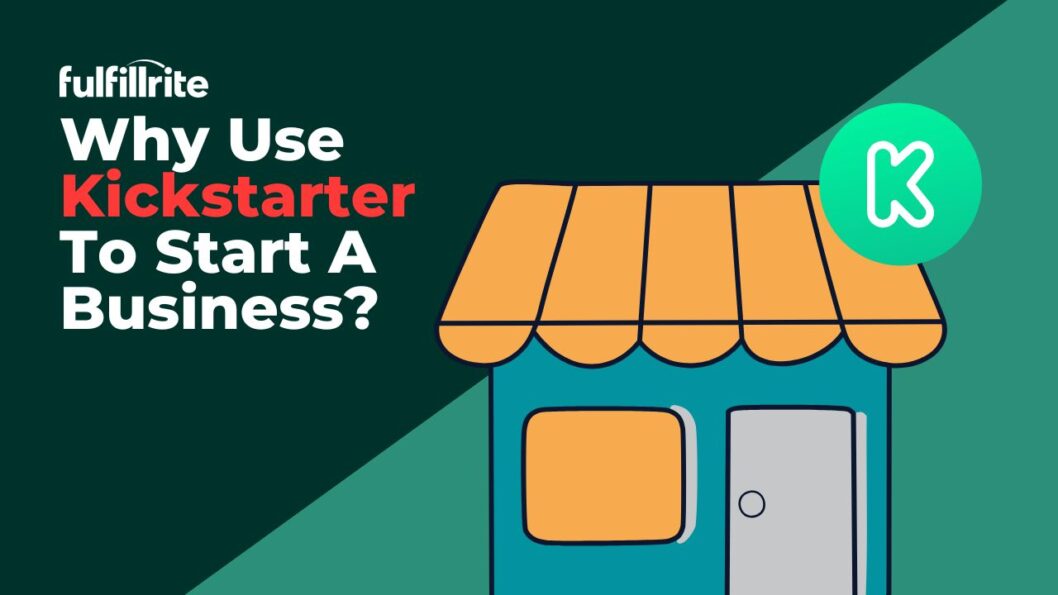Let’s say you have an amazing business idea–but you don’t have the money to get it off the ground. You’d hardly be alone here, since lack of funding is one of the most common challenges that startups run into. That’s why Kickstarter, and other crowdfunding tools are so attractive. Why raise funds from venture capitalists or bankers when you can ask individuals directly?
This is the concept behind Kickstarter, and crowdfunding in general. The appeal is undeniable. And that’s why Kickstarter has been able to help creators raise over $8 billion since its birth in 2009. It seems like everyone from famed author Brandon Sanderson to the creators of Pebble Watch and an unfathomable number of board game creators turn to the platform when it’s time to make money.
Kickstarter culture has become a complex and powerful beast over the last 15 years. So to help give you the context you need to succeed, we’re going to answer a few questions in separate sections. We’ll start by talking about what Kickstarter is, then we’ll discuss how you can use it in business and when it makes sense to do so. Then we’ll give you practical tips and additional resources toward the end.
What is Kickstarter?
Kickstarter is a crowdfunding platform that allows creators to fund their creative projects through the financial support of the crowd. The crowd here being a metaphorical one, dispersed around the world, made up of all kinds of people who are interested in the project.
Kickstarter was founded in 2009 and has since been the go-to venue for the funding of thousands of projects. Campaigns range from films and music to technology and design.
One of the calling cards of the Kickstarter business model is its all-or-nothing funding policy. Creators set a funding goal and a deadline, and they must meet or surpass this goal within the time frame to receive the funds. If the goal is not met, no money changes hands.
Can Kickstarter Be Used To Start A Business?
Absolutely, and in fact, there is a lot of precedent for that these days. Kickstarter is a very popular place for entrepreneurs to raise capital for their startup businesses. Kickstarter, as well as its peers like Indiegogo and Gamefound, allow individuals to present their business ideas to a wide audience. If the audience takes a shine to their offers, they can become backers, letting the entrepreneur secure funding through pre-sales or donations.
A classic example of this is the Pebble E-Paper Watch. It’s the first truly high-profile example of a business that started on Kickstarter. Their campaign in 2012 became the most funded in Kickstarter’s history at the time, raising over $10 million from nearly 70,000 backers. Kickstarter has only grown as a platform since.
Kickstarter has guidelines for starting a project which state that creators are responsible for completing their project and fulfilling each reward. Additionally, projects must fit into one of Kickstarter’s 13 categories, and they cannot fundraise for charity, offer financial incentives, or involve prohibited items.
Can Kickstarter Be Trusted?
Kickstarter has a strong reputation as one of the foremost crowdfunding platforms worldwide. To date, Kickstarter has been home to over 265,000 campaigns and has helped creators to raise almost $8.3 billion dollars since its inception in 2009.
Campaigners are also expected to be very transparent. For one, project funding progress is always publicly visible. Plus, creators are expected to share regular updates on project development and fulfillment of rewards.
As for protections and remedies for backers, Kickstarter ensures that creators are legally obligated to fulfill their promises. If a creator cannot fulfill a project, they must provide a refund or offer an explanation, detailing how funds were used, and the work done towards the project completion.
This does not mean that every single campaign ships and that every backer is pleased. However, given Kickstarter’s status as a platform for businesses to launch products in their early stages, it has been remarkably successful and reliable.
Kickstarter also has a dispute resolution process. It encourages backers and creators to communicate and work out issues amongst themselves. For egregious situations or policy violations, Kickstarter can intervene and take action such as suspending the project or banning the creator.
Why Use Kickstarter Instead of Regular Ecommerce?
To better answer this question, I’d like to share some insights from Darian Shimy, the Founder & CEO of FutureFund. His firm specializes in fundraising and volunteering for K-12 schools, so he has a lot of experience in the fundraising model that Kickstarter is based upon.
Shimy states that one of the primary reasons why you might use Kickstarter is to “assess the viability of a new product before fully developing or launching it. Crowdfunding allows entities to test concepts in a low-risk manner by generating interest and support for proposed products/services in a short campaign.”
The big idea here is that Kickstarter and other tools like it can be used for marketing research. Unlike eCommerce, you can see if there is interest in a product before spending a lot of money manufacturing it. And while eCommerce platforms such as Shopify and WooCommerce certainly have the ability to take preorders, they just aren’t quite as public as Kickstarter and its peers.
In short, Kickstarter can be used for market validation. For many business owners, this alone is worth the time and effort that goes into launching a campaign.
When Would You Choose Ecommerce Over Kickstarter?
Before you launch a Kickstarter campaign, it’s worth considering whether or not it is the best possible fit for your project. As Shimy states, “crowdfunding campaigns typically feature a few defined product reward tiers for a limited period.” In contrast, he states that “eCommerce provides constant browsability and purchasing opportunities.”
Put another way, one purpose of a crowdfunding campaign is to narrow the audience’s focus onto a single item with perhaps a few variants. If the goal is to start a business with multiple products right away, eCommerce is probably a better way to launch. Bear in mind that, should you successfully fund, you can always transition from Kickstarter to eCommerce after funding and fulfillment.
Tips for Starting a Business on Kickstarter
If you are thinking about starting a business on Kickstarter, here is a high-level overview of what you will need to do in order to launch your first project:
- Define Your Project: Detail what your project is, why it’s valuable, and how you plan to accomplish it. Be precise and thorough to create trust with potential backers.
- Set a Funding Goal: Analyze your budget carefully. Include production costs, shipping, taxes, and Kickstarter’s fees to set a realistic and achievable goal.
- Plan Your Rewards: Rewards should be enticing and offer value for money. Consider different tiers to cater to a range of backers. Include behind-the-scenes access or exclusive versions of your product for higher tiers.
- Create a Compelling Story: People connect with stories. Why are you passionate about this project? How will it benefit your backers? Use this narrative to engage your audience emotionally.
- Use High-Quality Media: High-quality photos and videos are crucial. They present a professional image and give potential backers a clear understanding of your project.
- Write Clear, Concise Copy: Keep your text easy to understand and get straight to the point. Use bullet points and headers to make your campaign easily skimmable.
In addition to creating a project, you will also need to promote it as well. Here are a few simple tips to help you with that:
- Use Social Media: Use platforms like TikTok, YouTube, Facebook, and Instagram to spread the word. Regular updates and engagement with your audience can boost your project’s visibility.
- Build a Pre-Launch Mailing List: A mailing list is a powerful tool for building hype before your campaign launch. Use lead magnets (like sneak peeks or discounts) to encourage sign-ups.
- Collaborate with Influencers: Partnering with influencers in your niche can get your project in front of a larger audience. Ensure the influencer’s audience aligns with your target market.
- Press Releases: Reach out to relevant media outlets and bloggers. A well-written press release can lead to valuable coverage and increased visibility.
Remember, successful crowdfunding requires careful planning, compelling storytelling, and active promotion. Kickstarter can provide a significant boost for your business, but your success on the platform will depend heavily on how much of an audience you are able to build on your own. Then once you have a community, you must proactively engage with your community and deliver on your promises.
Additional Resources For Launching a Kickstarter
Running a Kickstarter campaign is exciting, but difficult! Knowing where to start and what to do doesn’t come easy. That’s why we’ve put together this list of articles to help you run the crowdfunding campaign of your dreams.
If you’re looking for more general advice on how to run an eCommerce business, check out his series of articles instead.
And if you’re a bit further along and you’re worried about shipping and fulfillment, this set of articles will be perfect for you.
Good luck in your next business venture!
FAQ
What percentage of Kickstarter campaigns actually succeed?
Historically, about 39% of Kickstarter campaigns reach their funding goals. Success rates vary significantly by category—technology projects have lower success rates (around 20%) while games and design projects perform better (50-60%). Preparation and pre-launch audience building are key factors in success.
How much does it cost to run a Kickstarter campaign?
Kickstarter charges 5% of funds raised, plus payment processing fees of 3-5%. However, budget for additional costs like video production ($2,000-10,000), marketing, samples, and fulfillment planning. Many successful campaigns spend 10-20% of their goal on campaign creation and promotion.
Can I run multiple Kickstarter campaigns for the same business?
Yes, many businesses launch multiple campaigns for different products. However, Kickstarter requires each campaign to be for a distinct project. You can absolutely re-launch a project for the same product if your previous campaign didn’t fund successfully, but you must create a completely new project and submit it again for approval. Successful fulfillment of previous campaigns builds credibility for future ones.
What happens if I exceed my funding goal?
You keep all the money raised, minus Kickstarter’s fees. Many campaigns use stretch goals to add features or products when they exceed their target. However, be careful not to over-promise—additional funding often means additional complexity and costs.
How long should my Kickstarter campaign run?
Most successful campaigns run 30-45 days. Shorter campaigns (under 30 days) create urgency but may not allow enough time to build momentum. Longer campaigns (over 45 days) often see declining backer interest in the middle period.
What if I can’t fulfill my promises to backers?
You’re legally obligated to fulfill rewards or provide refunds. If you can’t complete the project, communicate transparently with backers about how funds were used and what work was completed. Kickstarter may intervene in cases of suspected fraud or gross negligence.

